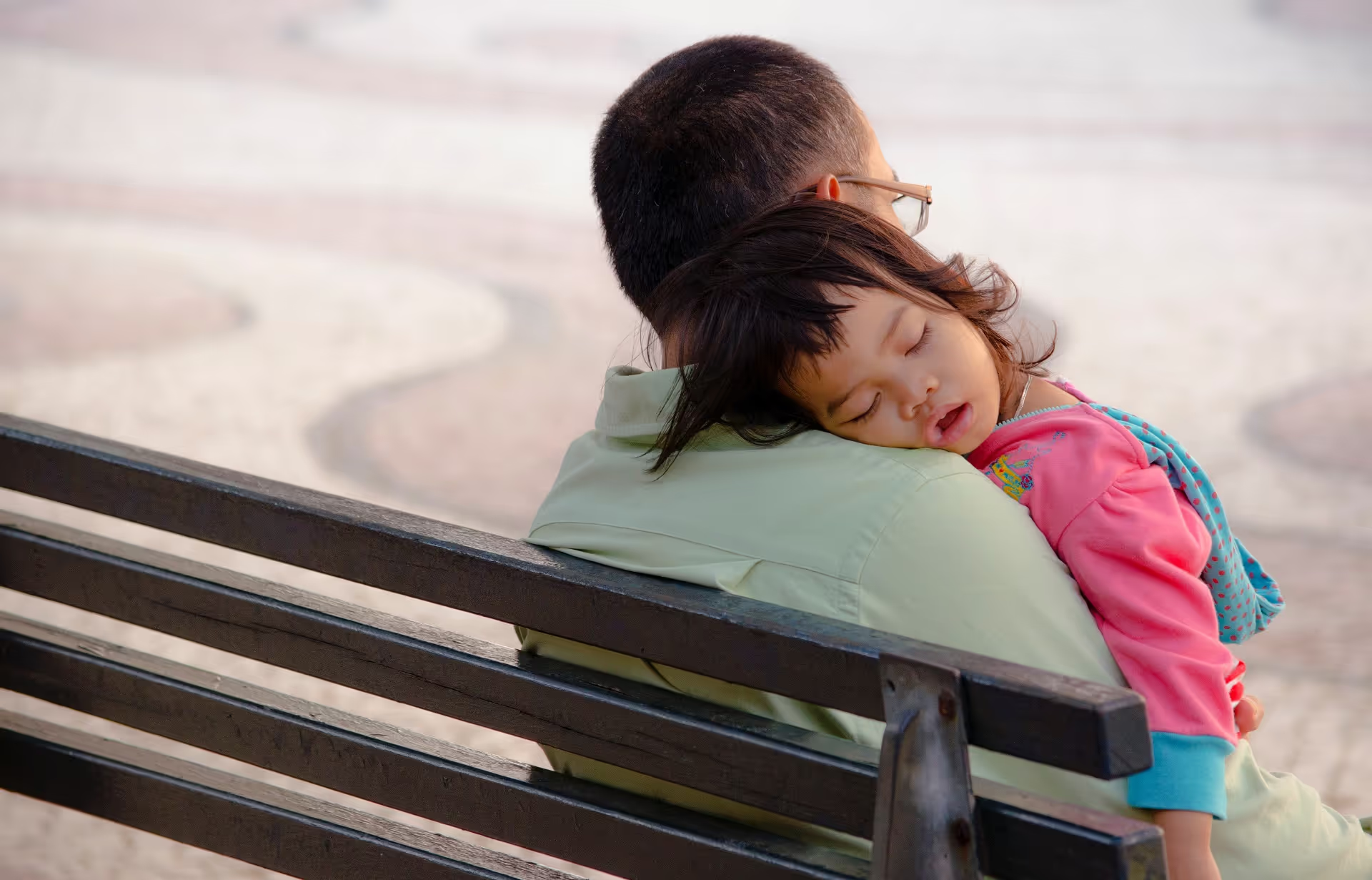"I can sleep when I'm dead!" quipped the iconic New German Cinema director Rainer Werner Fassbinder.
Indeed, he seemed to have other things to do: his meteoric career bequeathed us 40 feature films, 24 plays, two television series, three short films and four radio plays. Whether lack of sleep – due to exuberant creativity or, more prosaically, workaholism – played a significant role in his premature death remains unclear. Other “suboptimal” habits (such as alcohol, cocaine and possibly sleeping pills) no doubt also played a role in Fassbinder's premature death at the tender age of 37.
Nevertheless, one thing is certain: not only can lack of sleep make you very sick, it can also kill you!

Sounds a bit melodramatic? Of course, Fassbinder may just have been a sad if tragically prominent exception. But sleep deprivation does have serious consequences. In its milder forms, it can lead to mood swings, irritability, memory lapses and reduced cognitive performance. But if sleep deprivation becomes chronic, it can be a key contributor to heart disease, diabetes, obesity, dementia or mental illness.
Moreover, sleep deprivation carries high risks that can lead to personal and collective disasters – from car, train or space accidents (Challenger) to industrial disasters such as Chernobyl. Seen in this light, sleep deprivation also carries a high economic cost.
Yet, sleep is still often considered the poor cousin of lifestyle management. In an interview with Susan Worley, David F. Dinges, a sleep and chronobiology researcher at the University of Pennsylvania, pithily articulates this ambivalence: “Modern industrial pressures to use time 24 hours a day have led to shift work and a world in which virtually everything– law enforcement, airports and all kinds of transportation, industrial operations, and hospitals – operates 24/7. People have come to value time so much that sleep is often regarded as an annoying interference, a wasteful state that you enter into when you do not have enough willpower to work harder and longer.” (Worley, 2018)
On the one hand, this sleep ambivalence may explain the intense research conducted in the field since the 1970s, not to mention the gradual coalescing of sleep medicine as a new discipline. National and international professional associations were also established, and numerous peer-reviewed journals launched.
On the other hand, however, there is still a lack of structured curricula for the training of future physicians as well as comprehensive diagnostic protocols for sufferers. This makes for a particularly frustrating situation since, by now, over 80 sleep-related disorders have been extensively described, such as e.g., the very widespread obstructive sleep apnea. Underlying this ambivalence is no doubt the challenge of coordinating a transdisciplinary perspective – a crucial precondition for effective sleep research and treatment.
Indeed, beyond neurology and psychiatry, disciplines such as internal medicine, paediatrics, orthopaedics and osteopathy, otorhinolaryngology (ENT) or ophthalmology can provide decisive clues. Even holistic dentistry can help when bruxism (teeth grinding) is the problem that leads to increased tension throughout the body.
In fact, issues with sleep stem from an enormous range of potential causes that can plague both older and younger people. This may explain why lullabies are some of the earliest childhood memories. But just like babies and toddlers, adults often find sleep challenging for very prosaic reasons: too much to eat or the wrong food(s) but also hunger, thirst and the urge to urinate, not to mention an uncomfortable bed, noisy surroundings and the weather as well as sensory overload or emotional issues.
The day after a bad night, we often feel foggy or cranky, concentration is elusive, and our nerves are frayed. A searching look in the bathroom mirror may detect pale and wrinkled skin, glazed eyes, drooping eyelids and dark circles under the eyes. Hence, “beauty sleep” seems to be no fairy tale invention...

But beyond its aesthetic dimension, if the cause for insomnia is not obvious, it is crucial to search for clues – especially if problems persist, since chronic sleep deprivation tends to develop slowly and often goes unnoticed. So, first of all, it pays to meticulously examine both your sleep environment and habits to rule out possible issues that you could fix yourself before consulting your GP.
But before we delve into detective work, we still lack crucial answers. What is sleep? Why is it important? And when is it enough?
Sleep is simply relaxation and regeneration, isn't it? These aspects are indeed crucial – for both body and mind. But even if these dimensions seem frozen or even completely turned off at times, sleep is a much more dynamic process than previously envisaged. And even if the brain and nervous system appear to be the key players in this process, a variety of metabolic processes are also involved.
Of course, the human brain does seem to play the command centre role. But even here, many regions – from the hypothalamus to the brainstem – are involved in the complex steering that leads to slumber. Furthermore, signal transmission in this process is handled by messenger substances (neurotransmitters and hormones such as melatonin) that can deploy their effects both locally and throughout the entire body.
As central impulse generators, two biological systems stand out, when it comes to regulating the sleep-wake pattern. On the one hand, there is the circadian rhythm, which is based on a 24-hour period linked to the rotation of the earth. The circadian rhythm ensures that the body perceives environmental signals such as changes in light and temperature and adjusts accordingly. But even without external signals, it continues to operate.
On the other hand, it is the so-called sleep-wake homeostasis (i.e., an internal balancing mechanism) that encourages us to surrender to sleep after being awake for a long time. Telling nudges are usually yawning and simply feeling tired. Nevertheless, this subtle regulation can be derailed by a number of factors. As already mentioned, stress, sleep environment or diet are crucial, but non-sleep-related diseases and/or medications can also play a role.

The ultimate determinant, however, seems to be the light factor. This may explain why shift workers frequently wrestle with insomnia and why we suffer from jet lag during trips across time zones. It is also the reason why most sleep guidelines recommend avoiding the stimulating blue light emitted by digital technologies for at least a few hours before bedtime, since it can limit the release of melatonin.
Sleep itself is subject to a special rhythm, namely the cyclical alternation between so-called REM and non-REM phases, patterns which are repeated several times during the night. In the REM or “rapid eye movement” phase, the eyes actually do move particularly quickly under the closed eyelids. This is accompanied by specific brain wave patterns (involving alpha as well as beta and theta waves) that closely resemble those of the waking state.
Paradoxically, however, the rest of the body seems paralysed. Why is that? The REM is the phase during which we dream the most. So to prevent us from physically “acting out” our dreams and possibly injuring ourselves or falling out of bed, muscle tone is temporarily suspended.
However, we only enter the REM phase after about 90 minutes of sleep. Before that, we go through the three phases of non-REM sleep, which induce a progressively deeper relaxation. In the first transitional phase, we can still be easily awoken, but in the second, we are already fast asleep. It is in this phase, in which breathing and heartbeat are slowed down, but electrical brain activity repeatedly occurs, that we spend most of the night, when considering the night in its entirety. But it is only in the third non-REM phase that deep relaxation is attained – the relaxation that makes for a really restful night.
If, however, these cycles are disturbed, not only do the physiological recovery and repair mechanisms suffer but also mood and memory performance. REM sleep, especially, seems to be central to information processing, drive regulation and stress management, even if(partial) sleep deprivation has very individual consequences.
Surely, you have already admired, or maybe even secretly envied children sleeping. Even in chaotic circumstances, when they are really tired, they eventually do nod off and sleep deeply (or not, as exhausted young parents can also attest...). Moreover, the sleep capacity and sleep needs of babies and toddlers (when they do finally sleep) are just as impressive: small babies can spend up to 18 hours asleep! But even schoolchildren need about 9.5 hours till the end of puberty to feel rested.
Adults, on the other hand, need between 7 and 9 hours, while elderly people often (have to) make do with less (cf. Mander & al. 2018). In terms of cognitive performance and associated brain volume, 7 hours seem to demonstrate optimal results for most adults (see, e.g., Tai & al., 2022).

Unfortunately, sleep requirements are often wrongly gauged, and this in both directions. First of all, developing a regular sleep routine can be challenging for adults. Never-ending work and household chores, not to mention sundry temptations – from food to entertainment – distract us from a healthy sleep rhythm, while long lie-ins at the weekend are not a satisfying antidote either.
The quality of sleep also plays a significant role:uninterrupted sleep over several hours usually means better recovery than smaller sleep instalments, even if the latter are of course better than no sleep at all. In this regard, naps during the day can also have a positive anti-ageing effect, as researchers have recently found out. The brain volume of subjects who napped regularly proved to be larger (read younger) than that of subjects who did not engage in daytime napping (cf. Paz & al., 2023).
We already mentioned serious medical conditions that can be triggered by sleep deprivation. But over the years, sleep deprivation develops a cumulative ageing effect, as researchers Judith Carroll and Aric Prather pointedly put it in their review of sleep and biological ageing, “[...] cumulative evidence points to a role of sleep loss and sleep disturbances as a contributor to early disease onset and shortened survival. We propose that the molecular underpinnings that drive this risk are key drivers of the biological ageing process, including altering metabolism, promoting damage, failure in repair and restoration machinery, leaving lasting impacts on cellular health, telomere loss, cellular senescence, and ultimately system failure.” (Carroll & al., 2021). While research is still very young in the field, early studies on these phenomena are already providing strong evidence.

For those who still spend mostly sleepless nights, there appears to be a glimmer of hope. A team led by Dragana Rogulja at Harvard Medical School was able to identify a particularly plausible cause of death from sleep deprivation by using animal models.
After examining numerous tissue samples from fruit flies and mice, they surprisingly discovered the alleged culprit in the gut. Indeed, so-called reactive oxygen species (ROS) –aggressive molecules that cause oxidative stress – tend to accumulate in the intestine. After the researchers administered antioxidants (such as melatonin, lipoic acid or NAD) to the animals, they had normal or near-normal lifespans despite sleep deprivation.
Of course, it is rather premature to apply the results to humans, yet it seems legitimate to hope that damage caused by sleep deprivation may be mitigated through targeted nutritional supplementation.
However, we certainly would not recommend supplementing to save on sleep, thus imitating our initial example, Rainer Werner Fassbinder! A much safer longevity strategy remains the personal and/or medical exploration of potential causes of sleep deprivation, before experimenting with new sleep strategies and remedies.
So stay tuned for our next sleep article: we will be exploring typical causes of insomnia and describing strategies that can potentially promote better sleep...
By the way: with epiAge, you can scientifically monitor all your lifestyle changes – including a new sleep routine!
+++
Hendrich, Vladimír, “Schlafen kannich wenn ich tot bin”, Goethe Institut Tschechien, May 2022. Online: https://www.goethe.de/ins/cz/de/kul/mag/22972791.html
“Rainer Werner Fassbinder”, Wikipedia. Online: https://en.wikipedia.org/wiki/Rainer_Werner_Fassbinder
Worley, Susan L. “The Extraordinary Importance of Sleep: The Detrimental Effects of Inadequate Sleep on Health and Public Safety Drive an Explosion of Sleep Research”. Pharmacy & Therapeutics,2018 Dec;43(12):758-763. PMID: 30559589; PMCID: PMC6281147. Online: https://www.ncbi.nlm.nih.gov/pmc/articles/PMC6281147/
“How Sleep Influenced 5 Major Disasters”, Somnology, 21.11.2019. Online: https://www.somnologymd.com/2019/11/disasters-caused-by-lack-of-sleep/
Sorrels, Melynda. “10 Truly DevastatingDisasters Caused By Sleep Deprivation”, Listverse, 02.10.2017. Online: https://listverse.com/2017/10/02/10-truly-devastating-disasters-caused-by-sleep-deprivation/
“The Science of Sleep: Understanding WhatHappens When You Sleep”, Johns Hopkins Medicine. Online: https://www.hopkinsmedicine.org/health/wellness-and-prevention/the-science-of-sleep-understanding-what-happens-when-you-sleep
“Brain Basics: Understanding Sleep”, NationalInstitute of Neurological Disorders and Stroke, Last reviewed on March 17, 2023. Online: https://www.ninds.nih.gov/health-information/public-education/brain-basics/brain-basics-understanding-sleep
Tai, X.Y., Chen, C., Manohar, S. et al. Impact of sleep duration on executive function and brain structure. Commun Biol 5, 201 (2022).https://doi.org/10.1038/s42003-022-03123-3. Online: https://www.nature.com/articles/s42003-022-03123-3
O’Connor, Margaret, “Aging and sleep: Makingchanges for brain health”. Harvard Health Blog, 11.03.2019. Online: https://www.health.harvard.edu/blog/aging-and-sleep-making-changes-for-brain-health-2019031116147
Mander BA, Winer JR, Walker MP. “Sleep and Human Aging”. Neuron.2017 Apr 5;94(1):19-36. doi: 10.1016/j.neuron.2017.02.004. Online: https://www.ncbi.nlm.nih.gov/pmc/articles/PMC5810920/
Judith E. Carroll, Aric A. Prather. “Sleep and biological aging: A short review”, Current Opinion in Endocrine and Metabolic Research, Volume 18, 2021, 159-164, https://doi.org/10.1016/j.coemr.2021.03.021. Online: https://www.sciencedirect.com/science/article/pii/S2451965021000466
Valentina Paz, Hassan S. Dashti, Victoria Garfield, Is there an association between daytime napping, cognitive function,and brain volume? A Mendelian randomization study in the UK Biobank, Sleep Health, In print, Available online 20 June 2023.DOI: https://doi.org/10.1016/j.sleh.2023.05.002. Online: https://www.sleephealthjournal.org/article/S2352-7218(23)00089-X/fulltext
Jiang, Kevin, “Sleep, Death and… the Gut?”, The Harvard Gazette, 04.06.2020. Online: https://news.harvard.edu/gazette/story/2020/06/study-reveals-guts-role-in-causing-death-by-sleep-deprivation/
Caruso, Catherine, “Untangling the Mystery of Sleep. Recent sleep research reveals unexpected connections between the brain and gut”, Harvard Medical School, News & Research, April 11, 2023. Online: https://hms.harvard.edu/news/untangling-mystery-sleep
cottonbro studio/pexels
Gorup de Besanez, Rainer Werner Fassbinder, 1980: https://de.wikipedia.org/wiki/Rainer_Werner_Fassbinder#/media/Datei:PER51895_061.jpg
Guni Abel, Grabstaette RainerWerner Fassbinder, St. Georg (Bogenhausen): https://de.wikipedia.org/wiki/Rainer_Werner_Fassbinder#/media/Datei:Rainer_Werner_Fassbinder_Grab_Bogenhausener_Friedhof.jpg
William Adolphe Bouguereau - Bartoli, Damien & Ross, Frederick C. (2010) William Bouguereau: His Life and Works p. 440 https://de.wikipedia.org/wiki/Wiegenlied#/media/Datei:William-Adolphe_Bouguereau_(1825-1905)_-_Lullaby_(1875).jpg
Karolina Grabowska / pexels
Aditya Bose / pexels
SHVETS production / pexels
 Back to all posts
Back to all posts